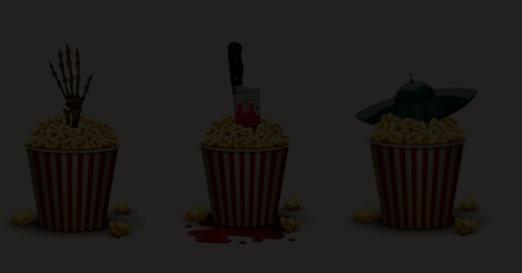Lars von Trier has developed a little bit of a niche for himself in creating richly bizarre material and working with unconventional subject-matter. If not Antichrist, Lars also is known for Nymphomaniac. Antichrist is a 2009 Danish experimental horror film written and directed by Lars von Trier, starring Willem Dafoe and Charlotte Gainsbourg. I wanted to watch this film because it looked interesting. I hadn’t been very acquainted with Lars’ work but I have always been interested in taking a look at it. I do enjoy the acting work from Willem Dafoe and have been hoping to discover more from him, however, and that’s also one of the driving factors that made me interested in it. I wasn’t expecting anything that would have me falling head over heels but a lot of me was hoping to be surprised with it.
It tells the story of a couple that is faced with the tragic death of their child, Willem Dafoe plays a therapist that is critical about the psychiatric care being given to his mourning wife, played by Charlotte Gainsbourg, and takes it upon himself to retreat them both to a cabin in the woods to work on her rehabilitation. Once there, he begins to experience bizarre visions, and his wife exhibits increased violent sexual behavior and sadomasochism. The film’s premise was interesting enough to hold my interest, and the acting seems capable and ready to offer a story that’s worth telling. Particularly, I enjoyed Willem Dafoe’s character, who comes off as about everything he should. Some critics referred to it as often misogynistic, and while I’ll neither support or deny that claim, I will say that it’s a film that’s not for everybody and not a film that I could imagine very many enjoying. I think it can be seen as misogynistic, I think it can be seen as something different entirely, and more fittingly, I think it can be seen as having something that can’t be uncovered at all. For what it’s worth, Charlotte does well in her role, but it never has a whole lot to work with for her, and while she conveys emotions with a commendable effort, like a woman that has basically shutdown on everything around her, I found myself more likened to Dafoe’s role because he had more dialogue to work with.
The cinematography is captured well, without anything that’s too in your face or explosive, but more like something that softly and discreetly adds to the piece while the film transpires.
While watching the film, I think it can be seen that a lot of the imagery and a lot of the darkness comes from a very real place for the director, that is, it really fits the mold of being an addition in his ‘Depression Trilogy,’ and from that, it’s something of merit. The biggest mistake about the film, and the biggest detriment, is the fact that the story becomes convoluted and borderline unwatchable by the end of it. In an interview when Lars von Trier was asked to explain the meaning of the film, he replied that he didn’t have an answer. That’s all fine and dandy, but the fact is, while it’s experimental, the film doesn’t really make a whole lot of sense. While there is certainly a sense of surrealism in that, it comes off as a film embroidered with red herring intricacies mistook as depth. This isn’t to say that the film doesn’t have depth, but more to say that a lot of it is meaning that either can’t be deciphered or doesn’t present itself in a formidable way on the screen. I won’t say that there isn’t something of a spectacle about the not knowing and the neurotic depictions, but it comes inducing more flaws than it does intrigue.
I don’t speak for everybody, and if you watch the film, you might find yourself being more optimistic, but I found for a lot of it to be incoherent and more spectacle than substance. If that’s something you’re into, you’ll likely enjoy it. If I had it my way, I would have happily watched a film about Willem Dafoe‘s character trying to help his wife overcome the depression of losing a child. Instead, the film delves into something that feels too ambitious for its own capabilities and grasp.
A lot of critics and audience-members complained about the extreme-nature of the film itself, and while there’s definitely some stuff that you aren’t likely to see at your local theater, even with an NC-17 rating, I can’t find it in me to complain too heavily. I think it’s definitely gratuitous, and as I’ve already said, I didn’t enjoy many elements of the story, but I do think the film itself believes in its own barbarity. I don’t believe it was put in there for the sole-purpose of shocking the viewer, but because it was believed to be actually relevant and intellectually significant to the plot.
The atmosphere, the cinematography, and the directing also work in creating a bizarre environment that feels like an anomaly that isn’t seen in a lot of films, and really does feel experimental and unique. I think I have already made it clear about what I thought about the film, but I believe from a purely technical standpoint, the film offers up the means to live up to the harshness of its title and make an atmosphere for itself.
Antichrist has a lot going for it in a lot of ways, but I found for it to be a very flawed film. I think there’s definitely a spectacle there, and there’s definitely something unique about it, but I don’t find myself loving it and I don’t know that it’s something I can recommend for everyone. I’d say if you can handle very grotesque violence and dark subject-matter, much beyond what is considered edgy in Hollywood (Fifty Shades of What?) then it might be worth your time and something you should decide for yourself on.

